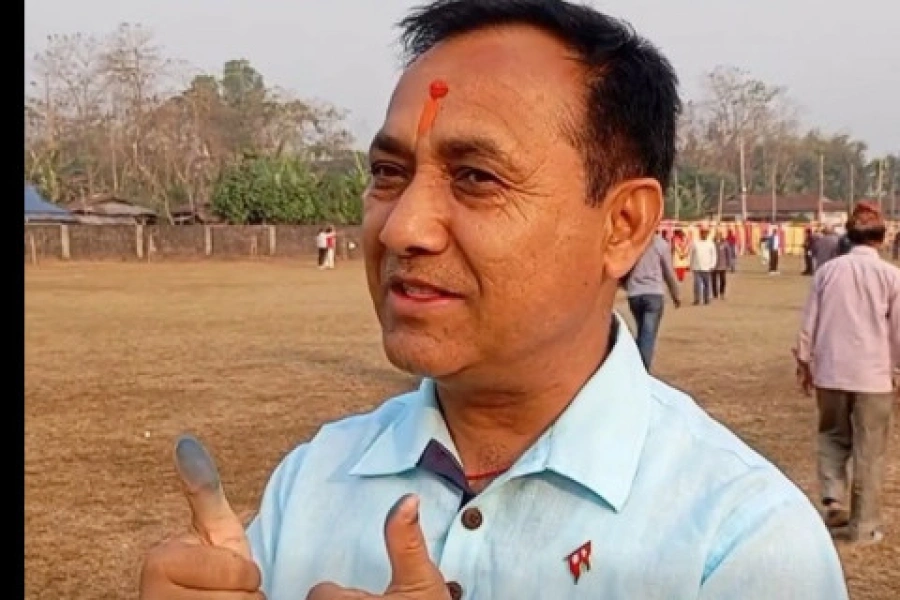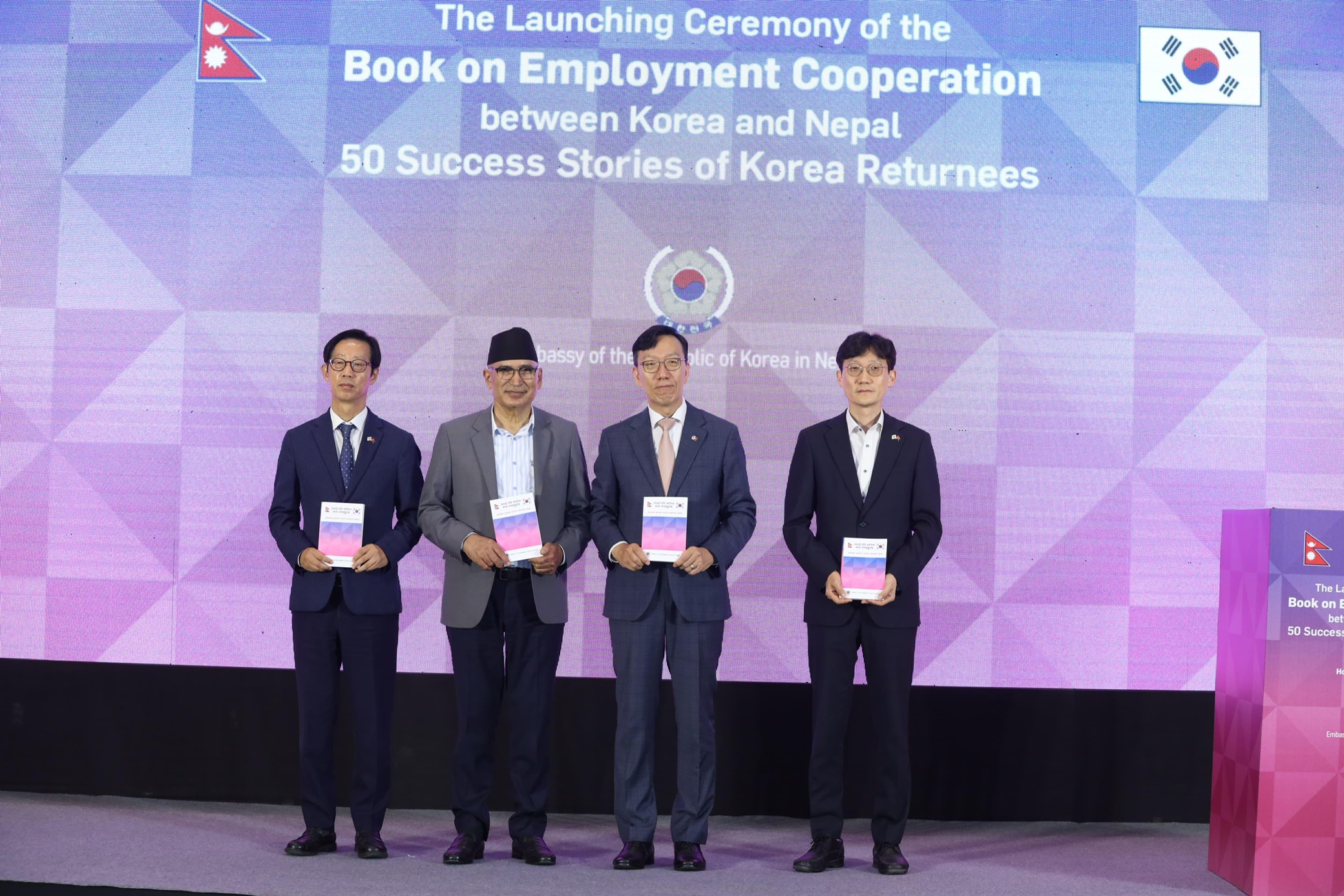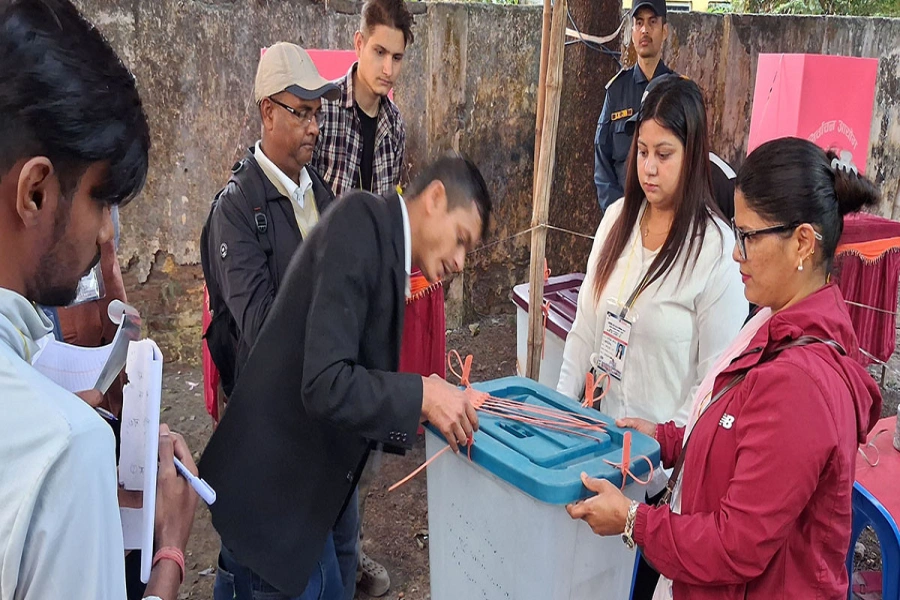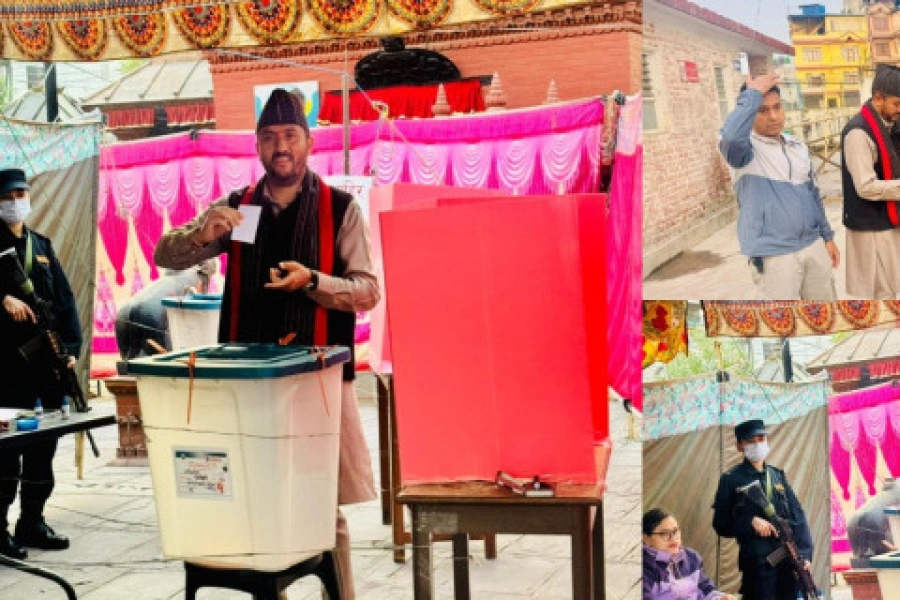KATHMANDU, Oct 16: Amid growing calls for utilization of capital and resources of non-resident Nepalis (NRNs) living in various countries, some NRNs have complained that there is not a favorable environment in the home country for them to do business.
Speaking at a session 'Returnee Professionals: Opportunities Seen and Challenges Faced in Nepal' organized on Sunday during the '1st NRN Global Knowledge Convention', they pointed out red tape, policy inconsistency and procedural hassles, among other factors, as impediment to utilizing their hard-earned capital and skills in Nepal.
During the session, they made presentations outlining the possible contributions that they can make after returning to the home country. Some migrant returnees also made presentations about their success stories in businesses after getting back to Nepal. Binod Ghimire, a returnee from Israel, was of among them. He started a farming business in Nepal after returning from Israel where he lived for nine years. Ghimire shared that he, along with other returnees, opened a farming business to utilize modern farming techniques he learnt in Israel. He believes that Nepal can achieve the goal of economic prosperity from investment in agriculture sector.
Mahat urges NRNs to utilize skills, knowledge in Nepal's develo...

“Agriculture business built on partnership model can transform the economy. We are not NRN anymore. We have chosen returnee Nepali as our partner,” he said, opining that the country should pursue a policy of 'one ward, one production'.
Ghimire, who has been running poultry farm, fisheries and vegetable farming, said that they plan to start commercial farming in 2,000 ropani of land in Dang soon. According to Ghimire, starting agro tourism business and farmer school also feature in their plans.
Also speaking at the session, Pratik Adhikari from Manamohan Memorial Research Center, said that Nepalis working abroad should be encouraged to return to their homeland for sustainable development. “Most of the Nepali workers going abroad are either unskilled or semiskilled. They should be provided with skill trainings so that they can earn more and send more remittances back to the country,” he said. “It's not only the money that they bring to the country, but also skills and expertise. To utilize their skills and expertise, the home country should create a favorable environment for return,” he added.
Rabindra Prasad Dhakal, chief of the technology department of Nepal Academy of Science and Technology (NAST), however, said that there are many opportunities in the country for returnees. “There are a lot of opportunities in the country. They need to be explored to get good returns while also contributing to the country,” said Dhakal, who is himself an oversea returnee. NAST has been working to encourage Nepalis working abroad to return Nepal.
Similarly, Prajwol Raj Bhandari shared the challenges that he faced in opening a research center in Nepal. “There is a perception among many that a research center is an NGO,” he said.
Merina Ranjit, Chief Operating Officer at Chaudhary Group, said that bringing machineries and equipment alone does not ensure success in development. She said that the research works were lacking in Nepal in almost every sector. “You can do anything. It's not that you have to do business only,” said Ranjit, who is a returnee from Singapore.
Some NRN experts said that the government's campaign to bring back scientists has failed. They also urged the government to review its campaign and other programs to attract non-resident Nepalis to their homeland.














-1200x560-1772642762.webp)





















